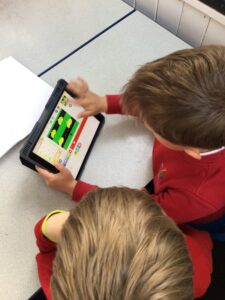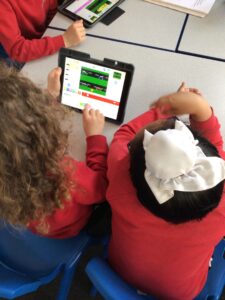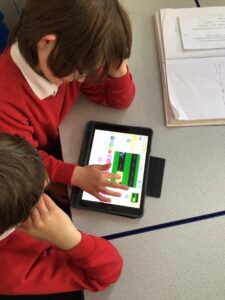Reading Retrievers
In one of our reading sessions this week, we practised our retrieval skills by completing a draw and label activity.
As a class, we read an extract from ‘Bill’s New Frock’ by Anne Fine.
The children were then given the task to draw the described setting in their books. They used their retrieval skills to scan and take bits of description from the text to use in their drawings.
Then, they labelled each part of the drawing using evidence from the text.
Whilst they were working on their retrieval skills, we listened to some Mozart in the background. Ask your child to see if they can remember any other composers we’ve listened to this year.
Here are some pictures of us hard at work:
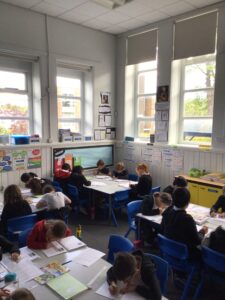
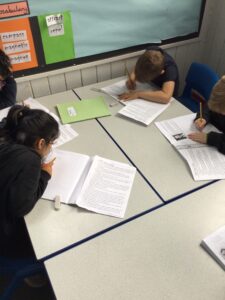
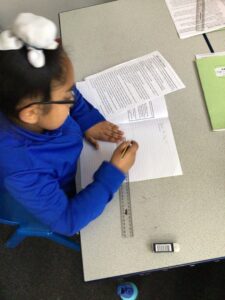
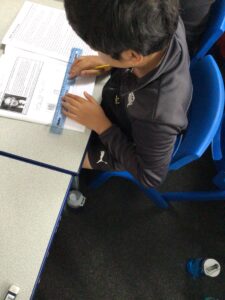
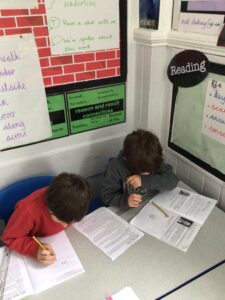
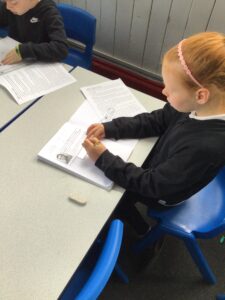

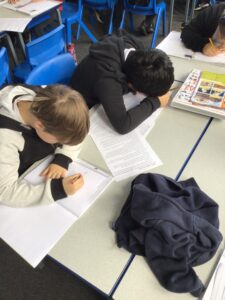
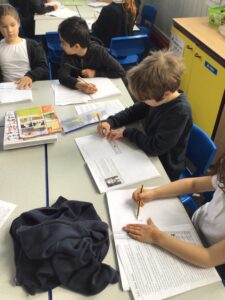
Comparative Testing: Which magnet is the strongest?
As you will know, our current topic in science is forces and magnetism. This means that we are learning as physicists. Ask your child to see if they can remember!
In this week’s science lesson, we conducted our own comparative test to answer the question:
Which magnet is the strongest?
As a class, we decided the best way to test this and we came up with two ideas.
- See how many paper clips each magnet can hold.
- See how many pieces of paper each magnet can attract a paper clip through.
Working in teams, we decided which method we wanted to use and got to work.
Here are some of our physicists in action!
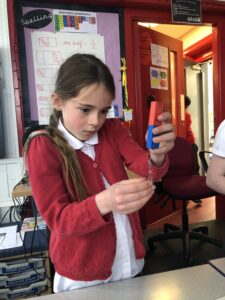
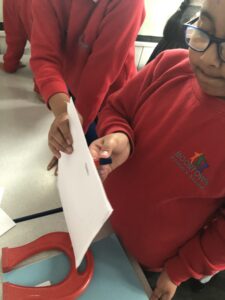
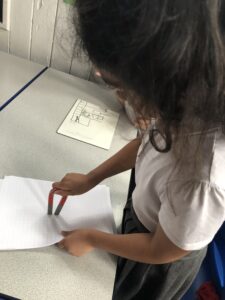
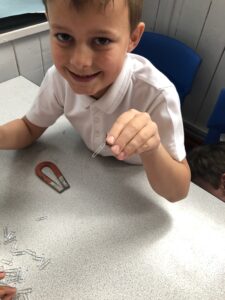
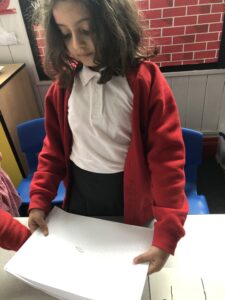
To further your child’s learning, see if they can fill in the missing words below.
- A north pole and a south pole of two magnets will ________.
- Two poles that are the same will _______.
- The area around a magnet that attracts and repels magnetic objects is called its ________ _______.
Answers:
- A north pole and a south pole of two magnets will attract.
- Two poles that are the same will repel.
- The area around a magnet that attracts and repels magnetic objects is called its magnetic field.
TTRS tournament winners (wb 10 May)
Hello again to all of the Times Tables Rock Stars out there,
Well done for all the engagement with TTRS you’re doing so far – keep it up!
BREAKING NEWS:
The results are in. We have our ROCK STARS OF THE WEEK.

With an outstanding 1284 points, this week’s winners are Y3!
A really close call between Y3 and Y6 this week but Y3 have just managed to hold off Y6 this time! What a great effort! Y3 are back on top after a few weeks of missing out!
Which class will claim the coveted guitar next time? Will it be your class? There’s only one way to make that happen – go on TTRS!
Remember to give your teacher a nudge as the week goes on if you’ve not yet had a chance to play on TTRS. If you’d like to play at home and would like a reminder of your login details, let your teacher know.
All the best TTRS!
In Reception this week
We said goodbye to the chicks on Thursday. The children have loved watching them hatch and grow. The caterpillars are finally growing and nearly ready to start building their cocoons- I think the cold weather has slowed them down this year!
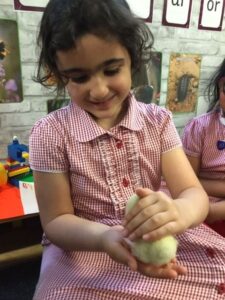
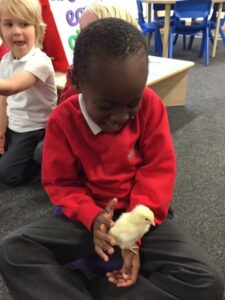
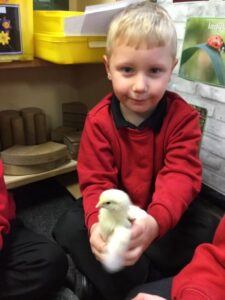
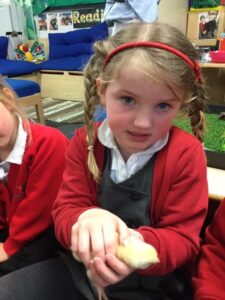
Literacy
This week we will read the story, ‘Superworm’ by Julia Donaldson. After retelling the story, the children will make their own super minibeast story. We are encouraging the children to write a simple sentence remembering full stops, capital letters and finger spaces.
Phonics
We will begin Phase 4 of the ‘Letters and Sounds’ phonics programme. In this phase children will use the phonemes learnt in Phase 2 and Phase 3 to read and spell words with four phonemes.
Children will continue to practise previously learned graphemes and phonemes and learn how to read and write:
CVCC words: tent, damp, toast, chimp
For example, in the word ‘toast’, t = consonant, oa = vowel, s = consonant, t = consonant
CCVC words: swim, plum, sport, cream, spoon
For example, in the word ‘cream’, c = consonant, r = consonant, ea = vowel, m = consonant
They will be learning more tricky words and continuing to read and write sentences together.
Tricky words
said, so, do, have, like, some, come, were, there, little, one, when, out, what
Please help your child to learn the phonemes from the previous phases.
We will continue to send words and books home which your child will be able to blend. Please make sure your child’s reading book is in their bookbag everyday as we read often.
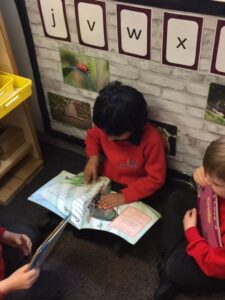
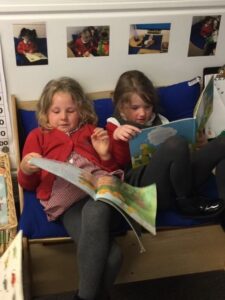
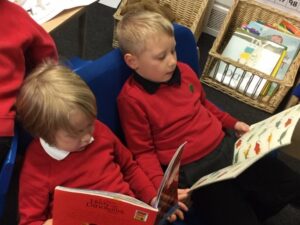
Maths
This week the children will begin to realise that a group of objects can be changed by taking away. They will solve problems involving addition and subtraction and tell maths stories using the language, first, then and now.
Please keep sending those ‘wow moments’ and any questions to
moortowneyfs@spherefederation.org
Computing
This half term, Year 1 are learning all about computing. Here are the age related expectations we are working on and the vocabulary and definitions that you will have been talking about for homework this week.
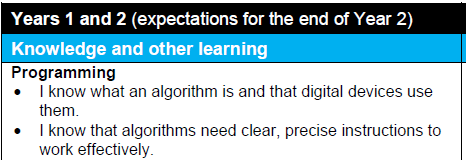

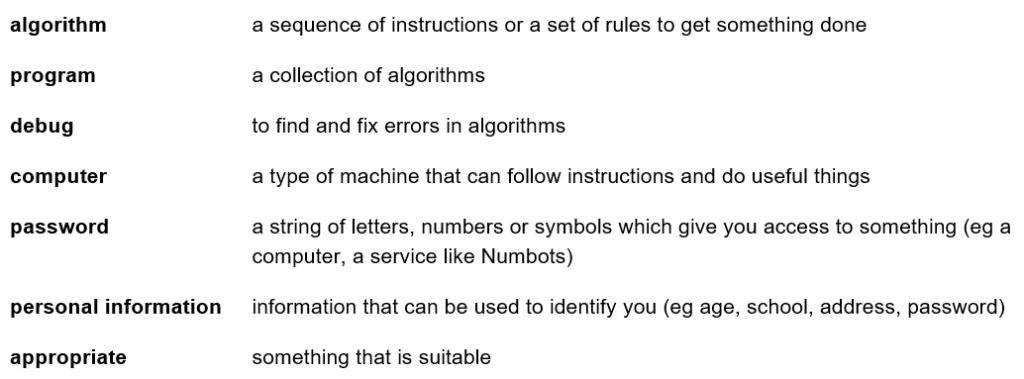
Firstly, we tried giving each other instructions (also known as an algorithms) to get from one place to another. We soon realised these algorithms needed to be clear and precise. For example, go forwards – but how far? Turn around – but which direction?
After trying some practical algorithms, we spent some time learning about the words to help us with position and direction including forwards, backwards, quarter turn left and quarter turn right. We started to write algorithms to help the BeeBot move from the start to the finish.
Here, the algorithm didn’t work so we had to debug it to see what had gone wrong. Once the algorithm had been corrected, we could get the BeeBot to the finish.
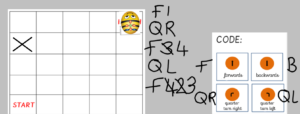
This rhyme has helped us to understand the meaning of algorithm and debug.
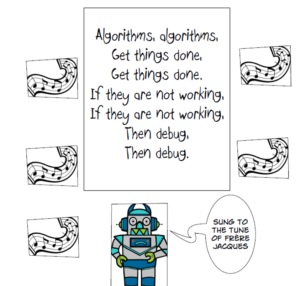
Most recently, the children were excited to use the BlueBot devices to put their algorithm and directional knowledge to the test.
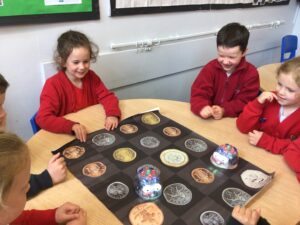
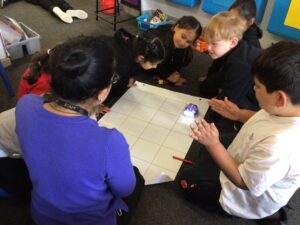
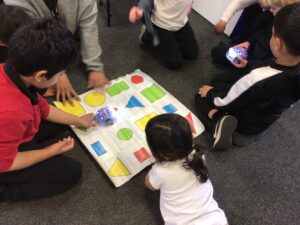
We will be doing lots more practical learning with the BlueBots to test out our programming skills.
Another part of this topic is all about keeping safe online. This forms part of the new statutory Relationships and Health Education curriculum (part of our Living and Learning curriculum) and the relevant age related expectations are listed here.
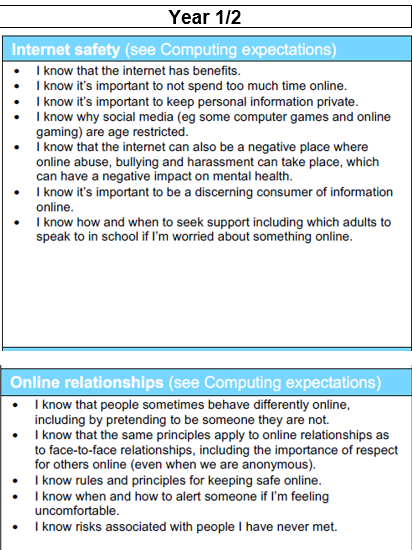
We have been using stories to help with this learning. Have a listen to these stories again at home.
Please discuss this important e-safety message with your child.
After-school club availability
Our after-school clubs return from next week and we still have some places available. It is not too late if you would like to book your child on. Clubs are mainly based on your child’s class bubble at the moment.
Monday
Year 6 dodgeball (starting 24 May)
Year 2 multi-skills
Tuesday
Year 2 Wake up Shake up
Year 3 football
Wednesday
Year 4 Wake up Shake up
Thursday
Year 1 multi-skills
Friday
Year 4/5 multi-games
Please check on School Gateway or contact the office for more details.
Living and learning: I know the importance of sleep.
Year six have been learning all about why sleep is so important.
“Sleep is important because you need your energy for the day. You grow in your sleep!” said Isabella.
“Your mind needs to rest and your body repairs itself like your muscles and skin,” explained Albie.
“If you don’t get enough sleep, you’ll be in a bad mood and you won’t be able to focus on your learning,” warned Felix.
We had a great discussion about good quality sleep and poor quality sleep and how each would make us look feel and behave.
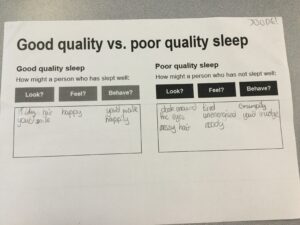
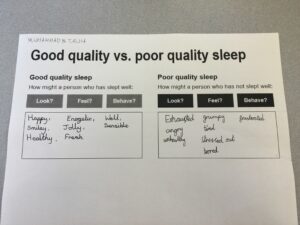

There are certain things you can do in the day to improve the quality of your sleep. You could:
- exercise
- spend time with pets
- tidy your room
- do something creative
- eat a balanced diet
We also made action plans to help other young people with their nightly routine. Something that really stood out (and that we are all probably a bit guilty of) was limiting electronics after a certain time.


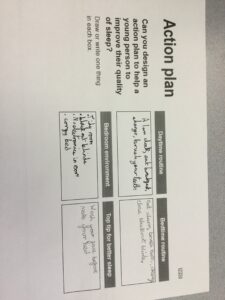
Planting
This half term, Year 2 have been learning about plants in Science.
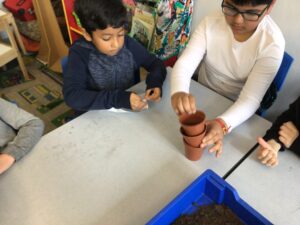
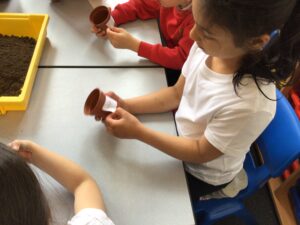
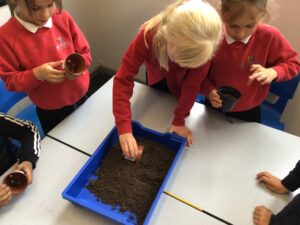
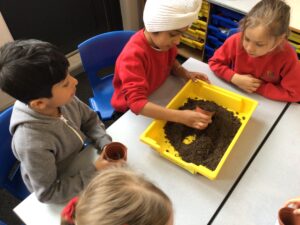
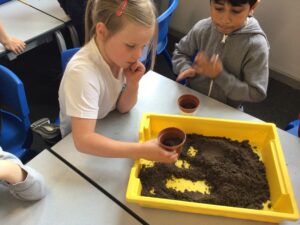
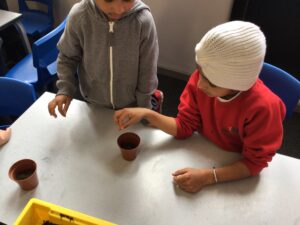
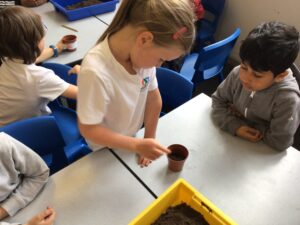
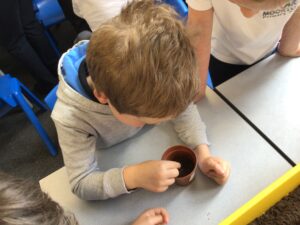
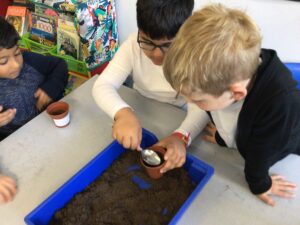
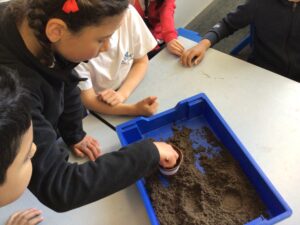
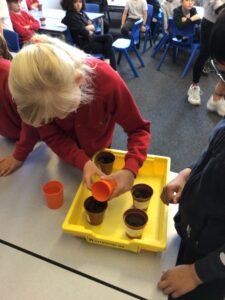
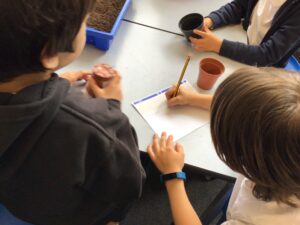
Science: Green Fingers
Year 1 scientists have been busy planting and observing bulbs and seeds. We began by investigating what a bulb needs to help it to grow into a mature healthy plant. The children set up a test and recorded their findings each week.
I don’t think the bulb with soil, water and light will grow very well.
I wonder if the bulb will survive with just water and light?
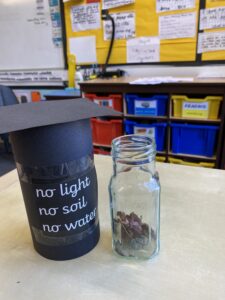
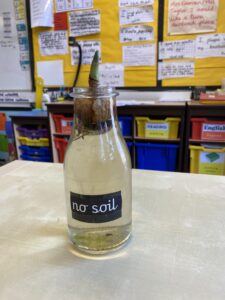
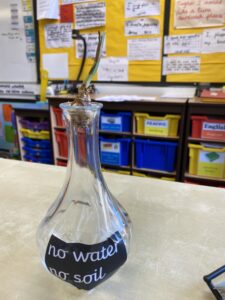
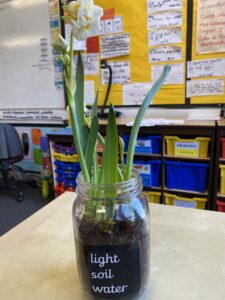
Part of being a scientist is being able to observe carefully record the findings.
I found out that a bulb needs soil, water and light to help it to grow into a healthy plant.
We also have another seed experiment on the go. For this one, we have placed a bean onto some wet paper towel and put it inside a plastic bag. Next, we put the bags onto the window and we will watch to see what happens. Ask your child about these pictures.

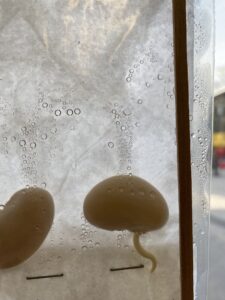
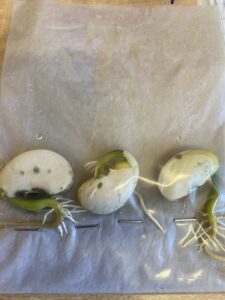
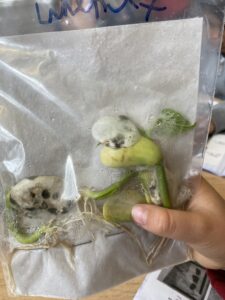
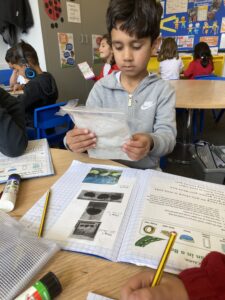
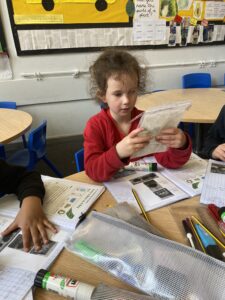
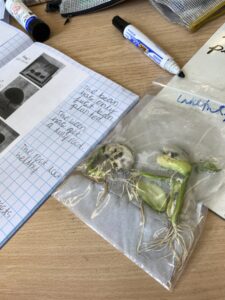
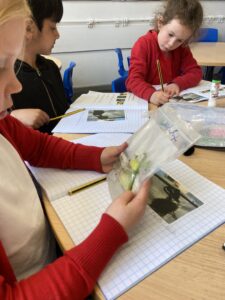
Finally, Year 1 are also growing their own potatoes. We have been measuring their growth using cubes.
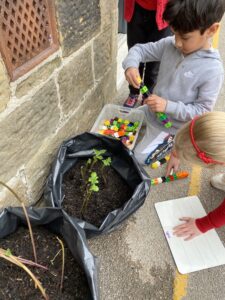
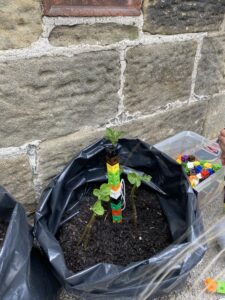

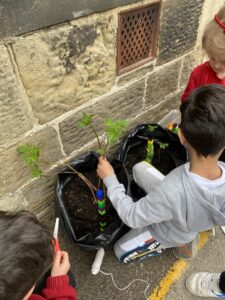
What great gardeners we have in Year 1!
Computing – Scratch Jr
In Y3, we have had loads of fun learning about computing using Scratch Jr.
I have been amazed at how quickly the children have picked it up and how well they’ve all done so far!
In our first week, we programmed a sprite (a 2d character in a computer game) to kick a football into the goal. We created algorithms (a set of instructions) for both the football sprite and the cat sprite.
After that, we programmed a scuba diver to swim up to a boat. The children added in their own extra challenge and some made it seem like the scuba diver was being chased by a crab! We used repetition (repeating certain instructions) in this lesson so that our algorithms were more efficient.
In our third week, we created our own knock-knock jokes using sequencing (putting instructions in order).
This week, we’ve begun making our own ‘crossy-road’ like games using all the things we’ve learnt so far while using decomposition: breaking down a task into smaller parts.
Ask your child to see if they can remember the parts they need to complete in order to finish their game!
Here are some pictures of our learning today:


